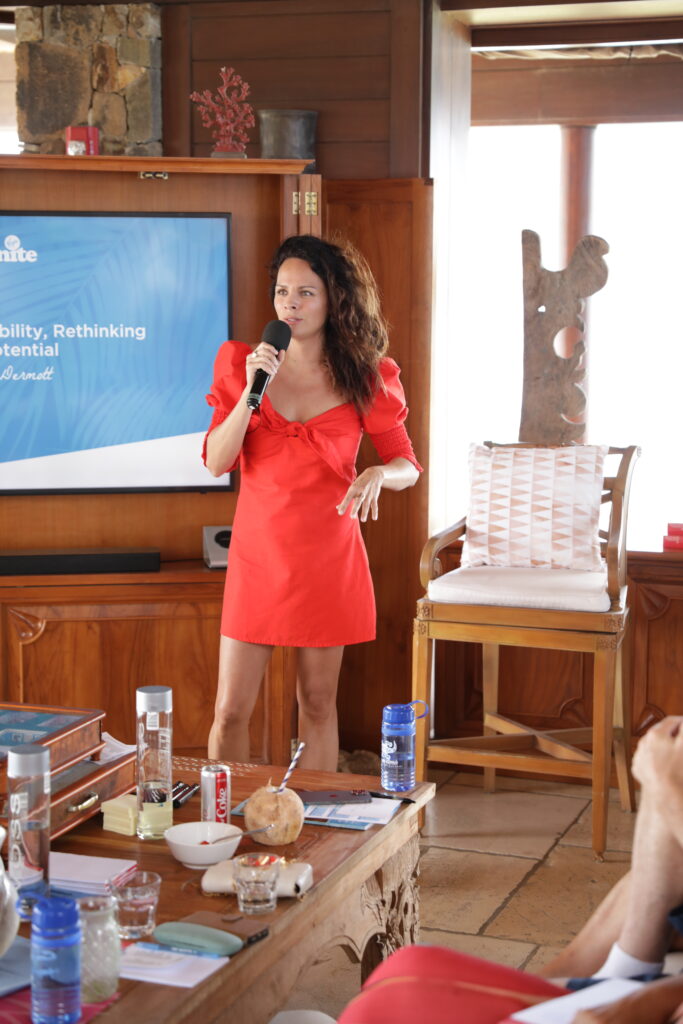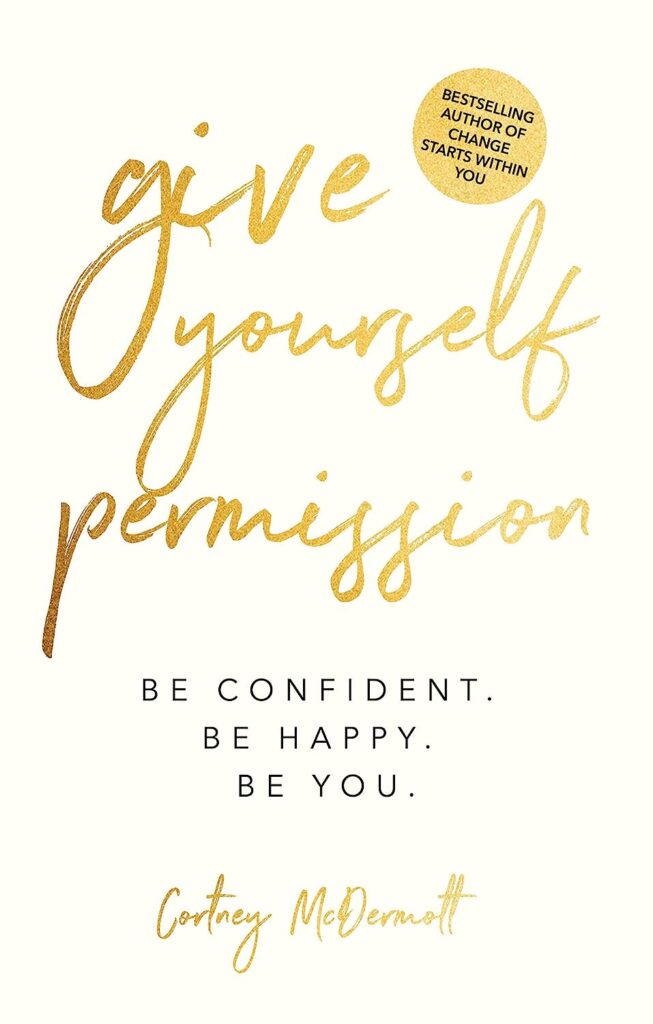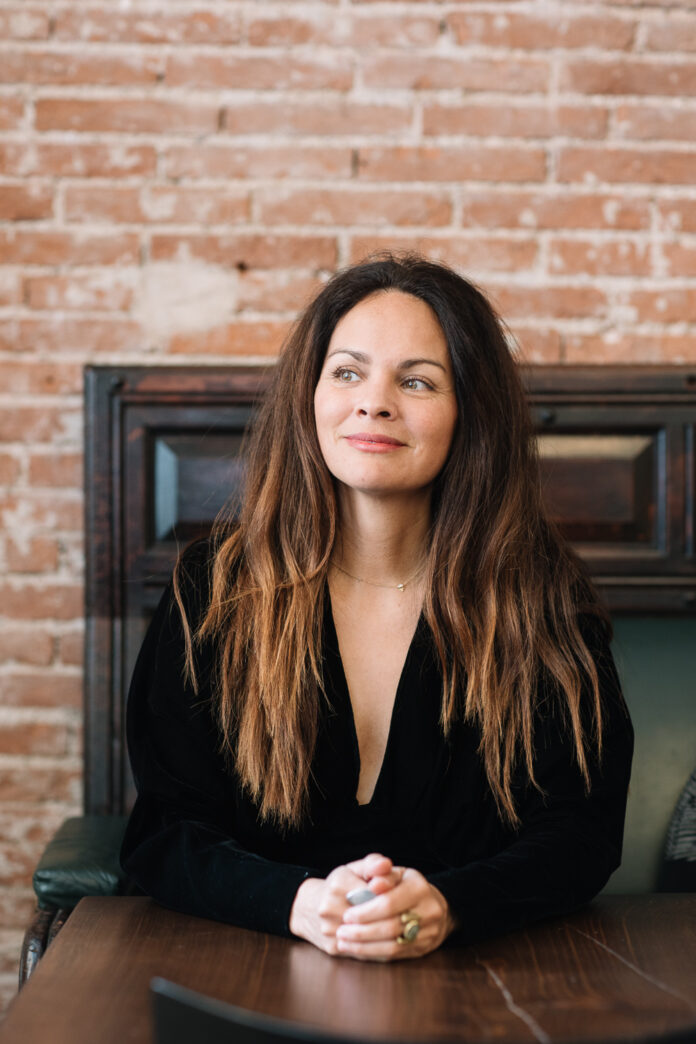( ENSPIRE Health & Wellness ) Learning From a Mind-Body Expert With Decades of Experience Cultivating a Health-Focused Life
ENSPIRE Contributor: Cailin Tennis
Cortney McDermott is an award-winning author, TEDx speaker, and mind-body expert. She helps the world’s leading organizations and creatives to disrupt old patterns of behavior, grow healthy businesses, and apply the physiology and psychology needed for success. Her work in self-development and business strategy has been featured in Inc., Women’s Health, SUCCESS, The Huffington Post, FOX News, and many other mainstream business and lifestyle media. Cortney has learned through her experience as an executive at Vanity Fair Corporation, Vice President at Sustainability Partners Inc., and then running her businesses, with high-profile clients.
The culmination of all this achievement is in her newly released book “Give Yourself Permission.” This read is something that everyone can gain insight from, regardless of their career, age, or lifestyle. Cortney guides high achievers to redefine what success means to them. Just like we worry about the sustainability of our environmental practices, we need to be intentional and strategic about our work practices to sustain ourselves.

ENSPIRE was excited to speak with Cortney about the difficulty of short-term vs. long-term satisfaction, advice for enhancing our well-being, and the importance of employee health for a corporation.
Could you tell us about your latest project/career step?
This summer I released my second book titled, “Give Yourself Permission”. It’s a provocative read about how we inhibit our health and how we can stop it. Chapter by chapter, the book explores the linear and nonlinear forces that govern our capacity to heal and grow. Readers can find case studies and practices that can create more of what they want in life (and a lot less of what they don’t).
Other topics that the book explores include how to separate our beliefs from our identity and reframe them, toxic positivity, and why it’s important to let yourself feel a range of emotions. The book touches on setting boundaries with yourself by limiting your exposure to ads and social media. Finally, an important topic examined is ‘Hustle Culture.’ This is when “ambition” can be a bad thing and how intrinsic motivation is far more powerful as a guiding force of action.

How does your experience in corporate America influence your view of mental and physical health?
Corporations run on quarterly returns and the expectation of continuous growth, almost as if cycles or seasons shouldn’t exist. This creates a kind of perpetual anxiety or unrest amongst most employees and a general sense of frustration when targets aren’t met. Progress is measured predominantly on financial gains, rather than non-quantitative indicators of progress. These might include, for example, the overall health and well-being of employees, or a general sense of evolved thinking, creativity, and problem-solving. This kind of backward ethos has an incalculable effect on its employees’ mental and physical health.
This type of quarterly-driven approach can be likened to the short-term behaviors most people take around mental and physical health. We go for short-term satisfaction today, knowing we will have to pay the price tomorrow. If we continue with this approach, the price gets higher and higher. Compound interest sets in and soon we’re not who we wanted to be. On the flip side, when we forgo instant gratification for a longer-term game, discipline pays major dividends. Again, when the magic of compound interest is at play, our businesses and people thrive.
How is sustaining oneself related to sustaining a business or collaborative movement?
In 2017 I published my first book, “Change Starts Within You” and gave my first TEDx talk, both of which redefine and shift the way we think about sustainability. I define it as “the ability to sustain yourself.” It’s a fresh approach that transfers the focus from the problem (ex. waste, emissions, etc.) to the solution. A solution might cultivate the well-being of individual leaders who can then challenge cultural and systemic biases, make better decisions, and lead from an open, innovative mindset and heart-set. It’s simple: If our people are not in a state of vibrant health, then our organizations and initiatives can’t be either.
What has been a source of inspiration throughout your career?
I find a lot of inspiration in people who don’t take themselves too seriously. These are people who know how to laugh, and who realize they’re only playing a role and want to do that in the best way they can. Whenever I couldn’t find that in my immediate environment, I turned to books, seminars, and teachers like Alan Watts, Oprah, Jim Carrey, and Sarah Blakely. These people reminded me it was possible, and that I could eventually lead like that.
Which of your jobs throughout your career has been your favorite?
By far, my current work as a writer and speaker is my favorite job and form of expression. I love watching clients and audiences light up with a deeper awareness of who they are. It’s the most thrilling experience to witness that spark. All the other characters I’ve played—student moonlighting as a waitress, secretary, corporate executive— are also expressions I’m deeply grateful for.
Do you have any small tips for increasing personal well-being daily?
Foremost, move! Lots of times we think our problems are psychological when it’s stuck with stagnant energy in our physical bodies. The fastest way to change your state of mind or your perception is to release that stuck energy through movement. You’ll have noticed that when you go for a walk or even just step away from your desk for a few moments, you start to feel lighter, ideas come to you more easily, and you’re more open to new possibilities. It’s simple and effective and works every time.
Second, get quiet. Pascal, the famous mathematician and philosopher once said, “All [our] problems stem from [our] inability to sit quietly in a room alone.” Take a few moments each day to really get with yourself, to sit quietly, and just notice whatever there is to notice, and you will begin to open up to potentials you didn’t even know you had.
Finally, listen. Deep listening to yourself and others is a portal to your connection with the divine within and all around you.

ENSPIRE encourages readers to heed Cortney’s advice and continue a long-term journey of holistic health. She is a role model for upcoming generations on how to preserve the environment, as well as themselves as individuals. She is also a great example that you can change your career if you bring passion and initiative to your life. To find more inspiration like this, and to learn more about Cortney McDermott, visit her website and watch her TED Talk below.
Related Articles: Sanicle Honors Juneteenth by Highlighting Health Impact on Black Menstruators, Dr. Cynthia Quainoo: Addressing Healthcare Disparities in Gastroenterology and Hepatology







